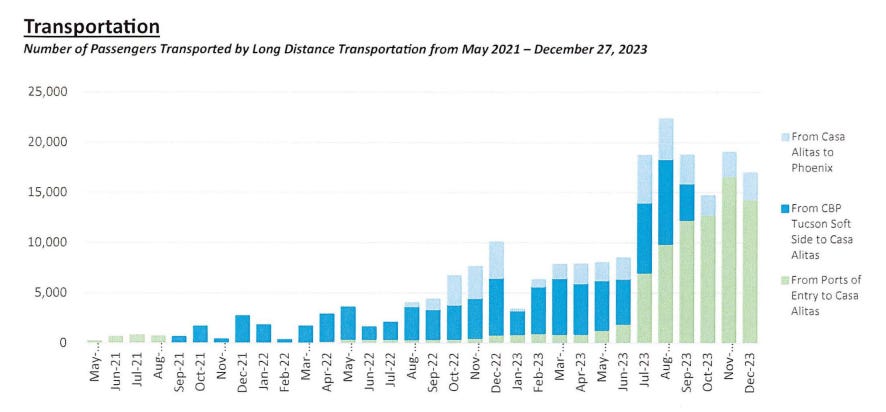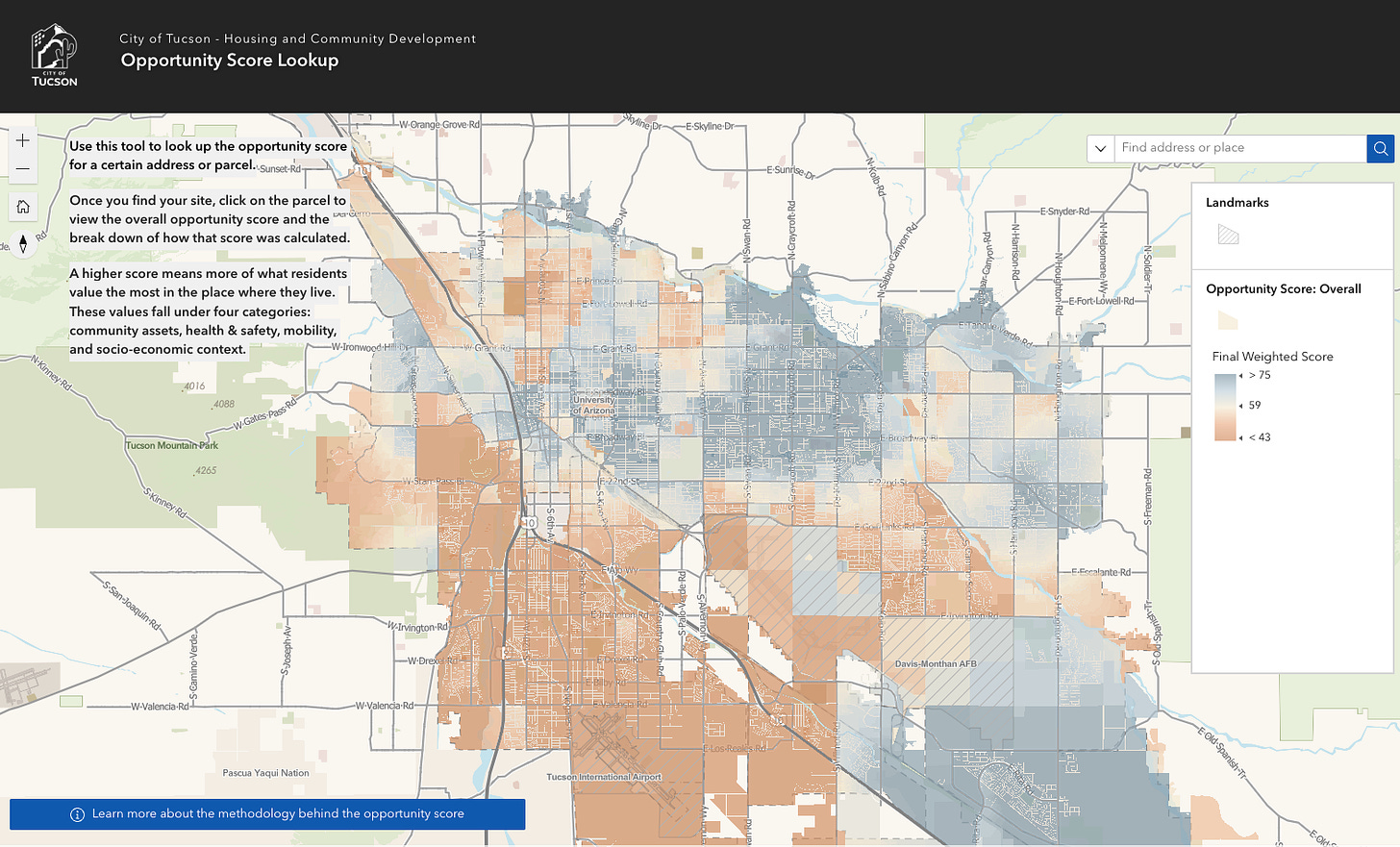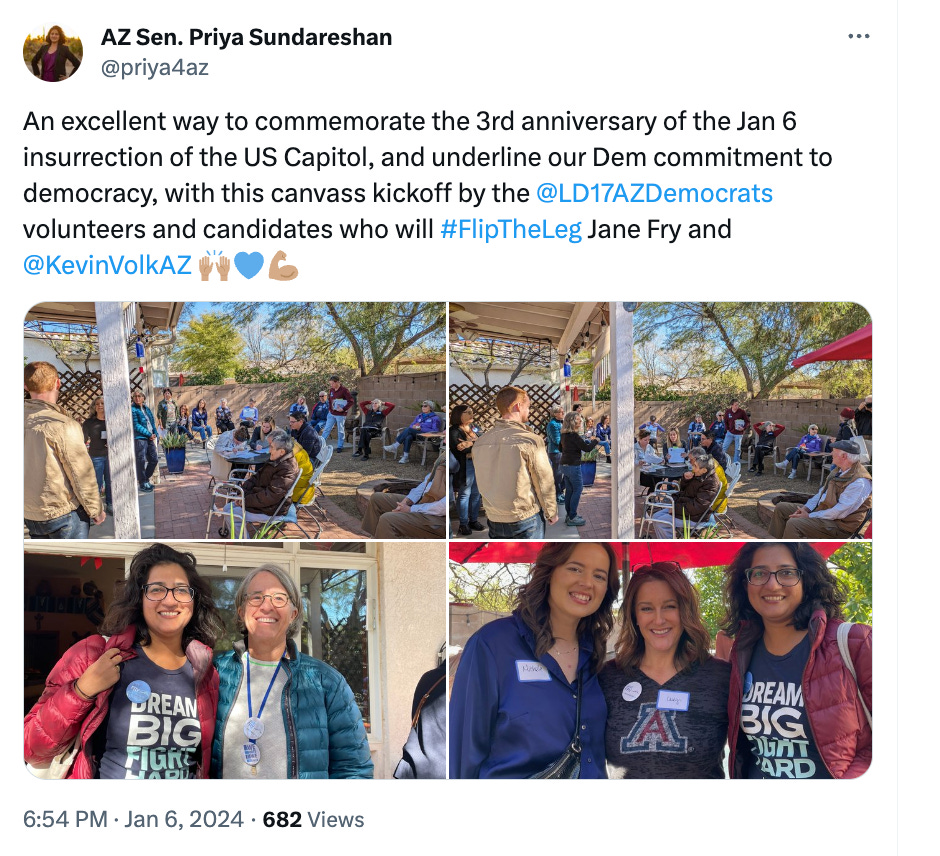The Daily Agenda: All the small things
Local officials have a lot on their plates ... Raising wages, asylum funding, student housing, to name a few ... Another jaguar spotted.
Today we’re doing something a little different. We’re changing formats to bring you interesting nuggets about what your elected officials are dealing with this week. They might not merit a standalone story, but you should still know about them. We’ll be back tomorrow with our normal format.
The Tucson City Council is set to raise wages for people working on big public works projects. For the first time since 1984, the council has the chance to adopt a prevailing wage for public works contracts. They’re planning to vote at their Tuesday meeting to require a prevailing wage, which is the typical wage for work in a specific area, on contracts worth over $2 million.
The state Legislature banned cities from doing it for decades, but when voters approved Prop 206 in 2016, they gave cities the right to establish a minimum wage, City Attorney Mike Rankin told the council last month. The City of Phoenix briefly adopted a prevailing wage last March, but state Sen. Catherine Miranda asked Attorney General Kris Mayes for a legal opinion. Mayes gave cities the green light in June and now the Tucson council is set to take the next step. As for costs, city staff said they likely would have to hire another person to oversee compliance. They did not address the taxpayer cost of increased wages in public works contracts.
Another student housing complex is coming to the University of Arizona area. A 74-foot-tall housing complex with 114 units and retail space is coming to the southeast corner of Euclid and Speedway. The Tucson City Council has to approve an exception to land-use rules in the area, so as part of a development agreement Capstone Collegiate Communities will include 30 “income restricted rental units” where the rent will be capped at 30% of the tenant’s income. To make way for the project, five historic houses will be relocated, four to 928 N. 2nd Avenue and one to 548 E. 1st Street. Another house will be demolished.
Funding for asylum seekers is up for a vote by the Pima County Board of Supervisors. The supervisors are going to consider an additional $2.7 million to shelter asylum seekers who test positive for COVID. The county first contracted with two hotel chains in late 2021 and the total value of the contracts now stands at about $19 million. That money doesn’t come from county taxpayers. The county used to depend solely on federal dollars, but they now can use state funds from Arizona’s Immigrant Emergency Care and Testing grant.
Tuesday’s vote also will show which way the board as a whole is headed. The supervisors, except lone Republican Steve Christy, routinely approve spending money to support asylum seekers. But in October, former Supervisor Sharon Bronson said the supervisors had become “enablers” and the Biden administration had bungled border policy. That made it a precarious 3-2 vote. Bronson resigned in November and her replacement, Sylvia Lee, will get the chance to weigh in after she takes the oath of office on Tuesday. Every penny counts as local officials deal with thousands of asylum seekers released by federal border officials every week.
Pima County officials didn’t meet the deadline to provide financial information to the Arizona Auditor General. They were supposed to turn over the annual financial report by Dec. 31, as they usually do. If they don’t provide that information soon, the auditor general is going to reassign staff and the audit could be delayed for months. The notice came in a letter from the auditor general that Supervisor Christy included in the materials for Tuesday’s meeting.
The first round of water bills go up for debate at the state Legislature on Tuesday. If you’re interested in Arizona’s water policies, the House Committee on Natural Resources, Energy and Water should be on your radar. State Rep. Gail Griffin, a Cochise County Republican and chair of the committee, is an outspoken opponent of groundwater regulation. She put three of her own bills on the committee’s agenda for a hearing Tuesday. The bills cover grandfathered rights to water in the Douglas Active Management Area local voters approved last year, along with rules regarding assured water supply and groundwater rights in active management areas.
The City of Tucson has an interesting tool that lets you look up the “opportunity score” of a parcel of land. You can use it to see how your neighborhood compares to the city as a whole. City officials also use it to figure out where they should buy land and buildings for affordable housing. The score is based on factors like proximity to schools, parks, and grocery stores, as well as the crime rate and overall safety.
The city also has a cool tool that lets you track how voter-approved funds are spent in your neighborhood. It’s part of the Tucson Delivers program and shows funds from Prop 101, Prop 407 and Prop 411. Just type your address into this tool and it will show you which projects are near you and how much was spent on them. If you’ve ever wondered how much the new playground equipment cost at your local park, here’s how you find out.
We covered a lot of ground today. If you have any thoughts on it, write a letter to the editor (email Curt at curt@tucsonagenda.com). Or you can reach out to your city council member, county supervisor, state representative or senator.
You can watch meetings of the Tucson City Council here, Pima County Board of Supervisors here, and the House Committee on Natural Resources, Energy and Water here.
A new cat in town: Experts confirmed that a jaguar spotted on a trail camera December 20 in the Huachuca mountains is one that has not been previously identified in the United States, the Arizona Daily Star’s Henry Brean reports. An official with the Center for Biological Diversity said that the distinctive rosette pattern in the animal caught on camera doesn’t match the markings on El Jefe or Sombra, the two jaguars most recently spotted north of the border.
Making a change: Patagonia School District’s governing board will decide next week whether the elementary and high schools will switch to a four-day week starting in the fall, the Patagonia Regional Times’ Dottie Farrar writes. In a survey conducted by the district last fall, 90% of parents approved the change, saying that the current schedule of half-days on Friday makes it difficult to pick up or arrange for their children to be picked up. With the new schedule, students would be in school from Monday to Thursday, with the length of each day increased between 30 and 40 minutes to make up for the time lost on Friday.
“A four-day week is a great tool to retain and recruit teachers,” said Superintendent-Principal Kenny Hayes. “Hopefully, it would reduce our absenteeism problem on Fridays and consequently students would miss fewer days.”
Pinching pennies: Pima County is stretching its funds to shelter and screen migrants, as officials say that the recent reduction in federal money could potentially lead to street releases as early as the end of February, the Green Valley News’ Jorge Encinas writes. On Wednesday, County Administrator Jan Lesher said that the county sees about 9,500 released asylum seekers per week, whom the county shelters and feeds as they make their way to their next destination. The Pima County Health Department is also trying to adapt to the funding shift and is looking to fill 19 temporary positions to help with emergency health screenings.
Shifting the approach: The City of Tucson has launched a new campaign for its public safety careers, with the tagline, “We don’t need a hero. We need you,” KVOA’s Megan Spector reports. Officials say the campaign aims to bring a diverse pool of applicants to the city’s police, fire and 911 departments, who will help mirror the community they serve. The campaign’s website says that only the most capable and compassionate people should work in public safety, and highlights some of the desired skills and benefits that come with these types of careers.
Back in business: The Morley Pedestrian Port of Entry in Nogales reopened Thursday morning, following a three-month closure while Mexican authorities renovated the facility’s southern side in Nogales, Sonora, the Nogales International’s Angela Gervasi writes. A steady stream of people passed through the pedestrian crossing, saying the route is much faster than other ports of entry, where passengers and motorists sometimes spend hours waiting to get through. The port gate was originally scheduled to reopen in late November, but staffing and other issues led to the delay.
Filling a need: A new project out of the University of Arizona will help provide hearing health care to low-income adults, UA News’ Penny Duran and Mikayla Mace Kelley write. The Hearing Healthcare Assistance Project is a new partnership between the Arizona Commission for the Deaf and Hard of Hearing and the three state universities that funds diagnostic audiology, hearing aid fitting and follow-up appointments and free aural rehabilitation for people ages 21 and older who don’t have health insurance.
$870 million: The projected state budget deficit for this fiscal year and the upcoming one.












Re: Gail Griffin et al.
Term limits in AZ are ineffective, due to redistricting and jumping from one House to the other when they are termed out.